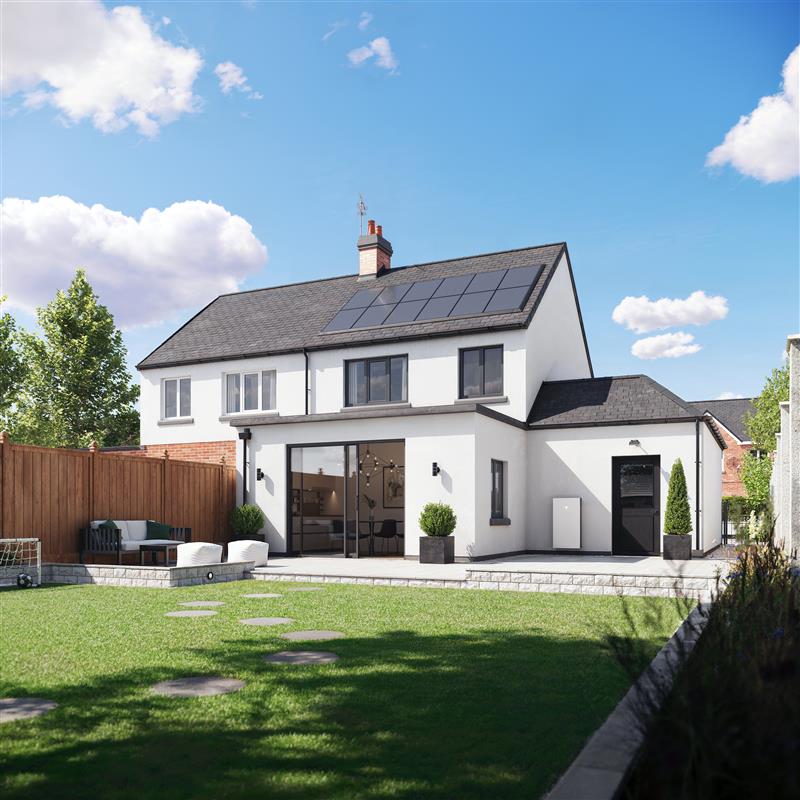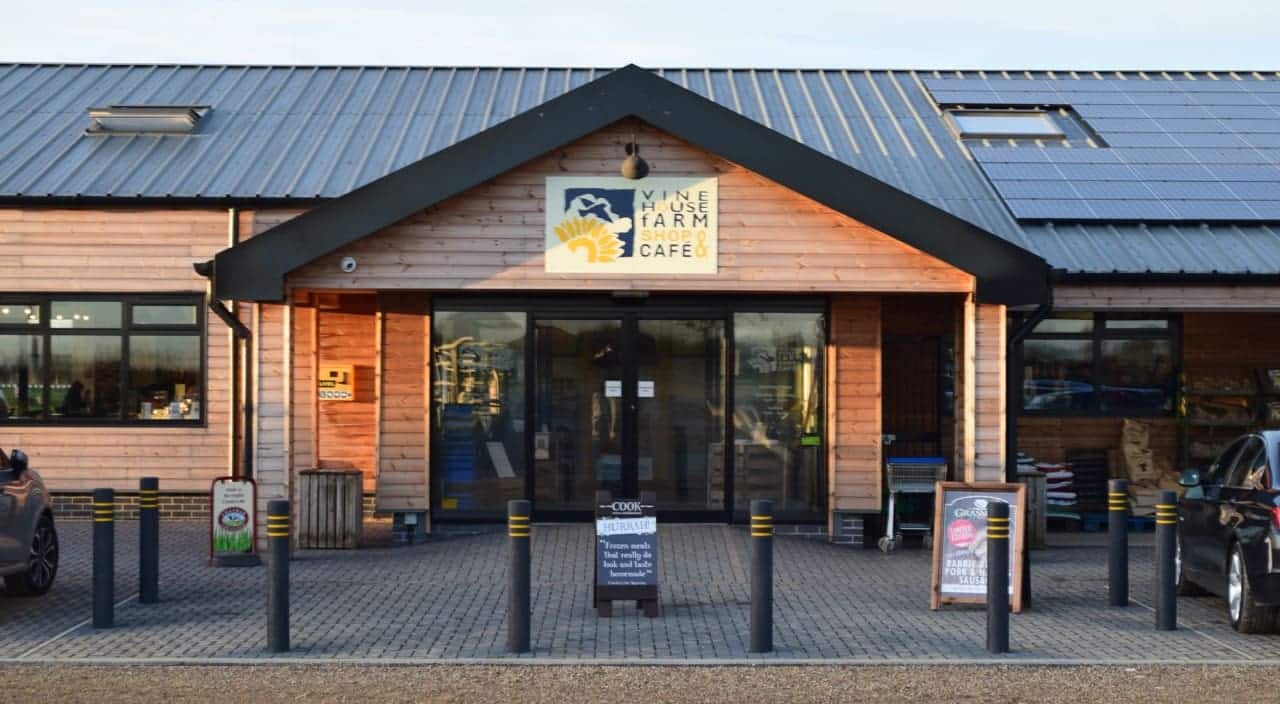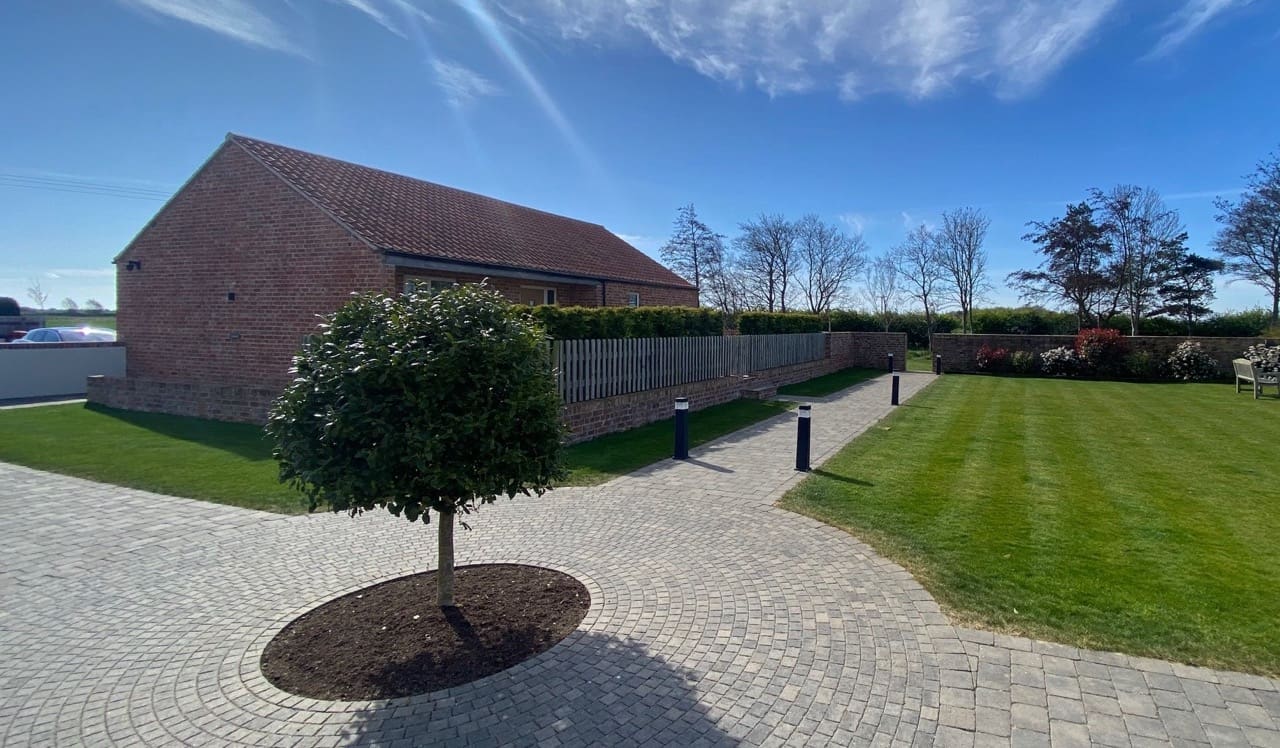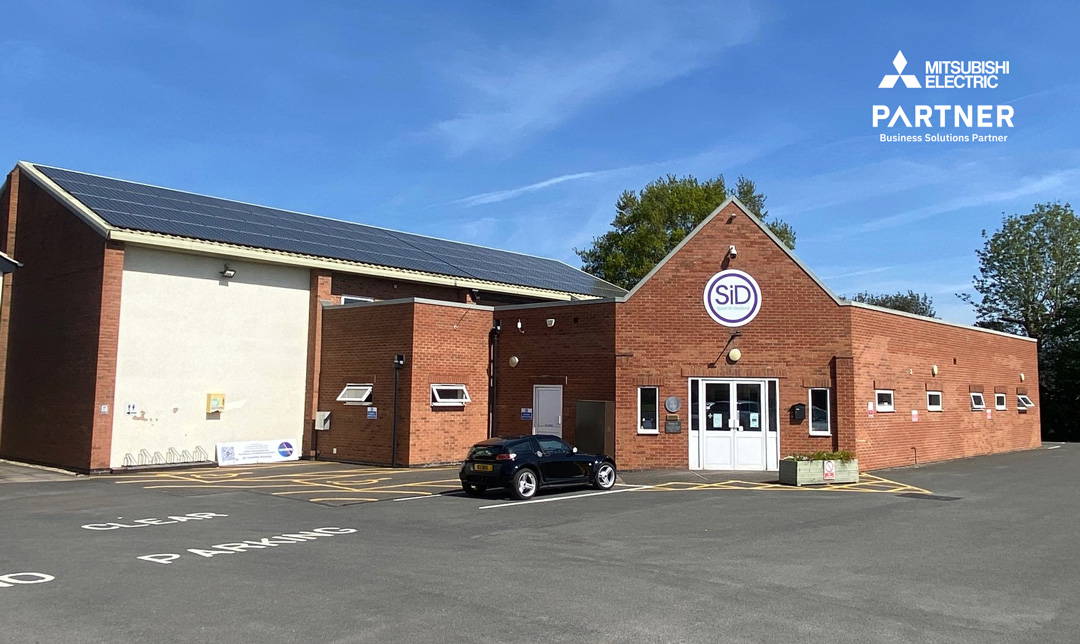Solar PV Installers
Harness the power of the sun and reduce your impact on the environment

How does Solar work?
Solar electric or PV systems work by converting sunlight into electricity, within the solar panel. PV cells are semiconductor devices that convert sunlight directly into electricity.
Direct sun produces the most power, but even on cloudy days some electricity is generated. The electricity produced is direct current (DC) and is sent to an inverter which converts the DC electricity into alternating current (AC) of a quality acceptable to the national grid.
The inverter would typically be mounted in the loft in a domestic installation or a plant room in larger commercial systems. The AC side is connected, via lockable AC isolators to the total generation meter, which monitors every kilowatt-hour (kWh) produced by the system.
We are MCS, NICEIC and RECC certified installers so you can rest assured that you are in good hand with your Solar PV or battery storage project.
Commercial Solar
Whether your business is big or small, installing commercial solar panels can be very rewarding. As most businesses operate during the day, on a 9-5 basis, installing solar panels will make the most of the daylight available during these times.
Currently, the best Smart Export Guarantee (SEG) offered by utility companies for your excess Solar electricity, is 0.15p per kWh. Because of this, and the savings made on increased energy prices, you can save up to 70% off your electricity bill.
This makes having Commercial Solar Panels, the perfect solutions whilst reducing your carbon footprint.
We Supply and fit Air Source Heat Pumps for:
Homeowners
Your home should do more than provide shelter and be efficient. If designed or updated correctly they can provide a far more healthy and comfortable environment to live in.
Commercial
Increasingly challenged to lower your operating costs and to meet the environmental expectations of your key stakeholders? We offer bespoke, full-circle solutions tailored to your specific needs.
Key Solar PV Benefits
Lower electricity bills
Solar panels harness sunlight to generate free, low-carbon electricity, significantly lowering your bills. Generate your own free solar energy and reduce dependence on the grid. Solar panels can power your home, charge your electric vehicle, and even heat water – all while avoiding energy price hikes.
Environmentally friendly
Switching to solar power reduces your reliance on fossil fuels and cuts greenhouse gas emissions, helping combat climate change. Choosing solar power is a key step toward a sustainable future and lowering your carbon footprint.
Quick and easy installation
Modern solar panel systems can be installed quickly, even in conservation areas. Once installed, they require minimal upkeep.
Maximise your solar power potential
Adding a battery to your solar PV system increases its effectiveness by nearly 40%, allowing you to store and use more solar energy when you need it most.
Earn money by generating & exporting electricity
Through the Smart Export Guarantee (SEG), get paid for any surplus electricity you send back to the grid.
Take advantage of 0% VAT
Enjoy the benefit of 0% VAT on solar panel installation in the UK — making solar more affordable than ever.
Battery Storage
A Solar Battery Storage System, is the same as any kind of battery, it simply store energy. By connecting a solar battery to you Solar PV system, you can store any excess electricity that your solar system generates. Without a battery storage system connected to your Solar PV system, any excess electricity generated is fed back into the national grid. A Solar Battery system allows you to use the electricity at another time, for example in the evening when electricity demand is usually higher and your Solar PV system is not generating as much energy.
Do you know that Solar Battery storage can be installed onto an existing Solar PV system as well as a new installation? We are able to retrofit Battery Storage Systems onto you existing system even if collecting FIT payments! Get in touch with us to find out more.
Best ways to use solar panels
Solar panels & batteries
Photovoltaic solar panels generate electricity during the day, often when we’re not at home or using much power. By installing a solar battery system, you can store this energy for later use, ensuring you have power when you need it most. Additionally, you can even sell excess energy back to the grid!
Solar panels & heat pumps
Combining heat pumps with solar panels can be a sustainable way to heat or cool homes and buildings. Solar panels can supply the electricity needed to run the heat pump’s compressor and fans, which are the primary components requiring power.
Solar panels & EV charging
If you want to charge your electric vehicle during the day, you can power it directly from your solar panel system. However, since most people prefer to charge their EV overnight, a solar battery system is essential, allowing you to use stored power to charge your vehicle during the night.
Case studies
Vine House Farm Shop and Café, Spalding
Home » Solar PV Vine House Farm Shop and Café, Spalding 1 x 80kW F1345 Nibe ground Source Heat Pump. 4,000M ground Loop. Underfloor heating and blown air heating to the shop and Café areas 1 x Nibe VPB 500L hot water cylinder provides hot water to Toilets and Kitchen…
Lincolnshire Coastal Cottages Skegness
Home » Solar PV Lincolnshire Coastal Cottages Skegness 1 x 40kW F1345 Nibe ground Source Heat Pump. 2,000M ground Loop. Ground and first floor underfloor heating to the Holiday let Cottages. 1 x Nibe VPB 750L hot water cylinder provides hot water to Bathroom…
Sport in Desford
Sport in Desford 3 x 14kW Mitsubishi Ecodan 3 phase cascaded ASHP’s, total output 42kW. Heat distribution into the existing radiator systems with timed controls. 2 x 300L hot water cylinders provide hot water to the shower blocks and tap outlets. System…
Solar PV FAQs
Can I put solar panels on a flat roof?
Yes, solar panels can be installed on a flat roof. Special mounting systems are used to position the panels at the optimal angle to capture sunlight, ensuring maximum efficiency and energy production.
Can I install solar panels in my garden?
Absolutely, you can install solar panels in your garden. Ground-mounted solar panels are a great option if your roof isn’t suitable or if you have ample space in your garden. They offer flexibility in placement and can be adjusted for optimal sun exposure.
Do solar panels work all year round?
Yes, solar panels work all year round. While their efficiency is higher in sunny conditions, they can still generate electricity on cloudy days and during winter months. Advances in solar technology ensure that panels continue to produce energy even in less-than-ideal weather conditions.
Can I add batteries to my solar panel system?
Yes, you can add a battery storage system to your solar panel setup. This is a fantastic way to maximize the benefits of your solar panels By storing excess energy generated by your solar panels, you can use it later when needed, enhancing your energy efficiency and independence.
Do I have enough space?
To determine if you have enough space for solar panels, consider the size and layout of your roof or the available ground area. Solar panels require a clear, unobstructed surface to capture sunlight effectively. Generally, a typical residential solar panel system requires about 200 to 400 square feet of roof space. Additionally, ground-mounted systems can be an alternative if your roof space is limited.
Does my roof face the right way?
Ideally, solar panels should face south in the Northern Hemisphere to capture the most sunlight throughout the day. However, east or west-facing roofs can still work effectively, though with slightly reduced efficiency. Your roofs orientation can be assessed for optimal energy production.
Does my roof get enough sun?
For solar panels to be effective, your roof should receive ample sunlight without significant shading from trees, buildings, or other obstructions. Solar panels perform best in direct sunlight, so it’s essential to evaluate any potential shading issues. A solar assessment can help determine if your roof gets sufficient sunlight throughout the year.
Do I need planning permission?
In many cases, solar panel installations on residential properties do not require planning permission, especially if the panels are installed flush with the roof. However, if you live in a conservation area, a listed building, or plan to install a ground-mounted system, you might need to seek permission. It’s always best to check with your local planning authority to ensure compliance with any regulations.
Ready to go solar?
It all starts with finding out your exact requirements. Explore how solar energy can transform your home or business.



